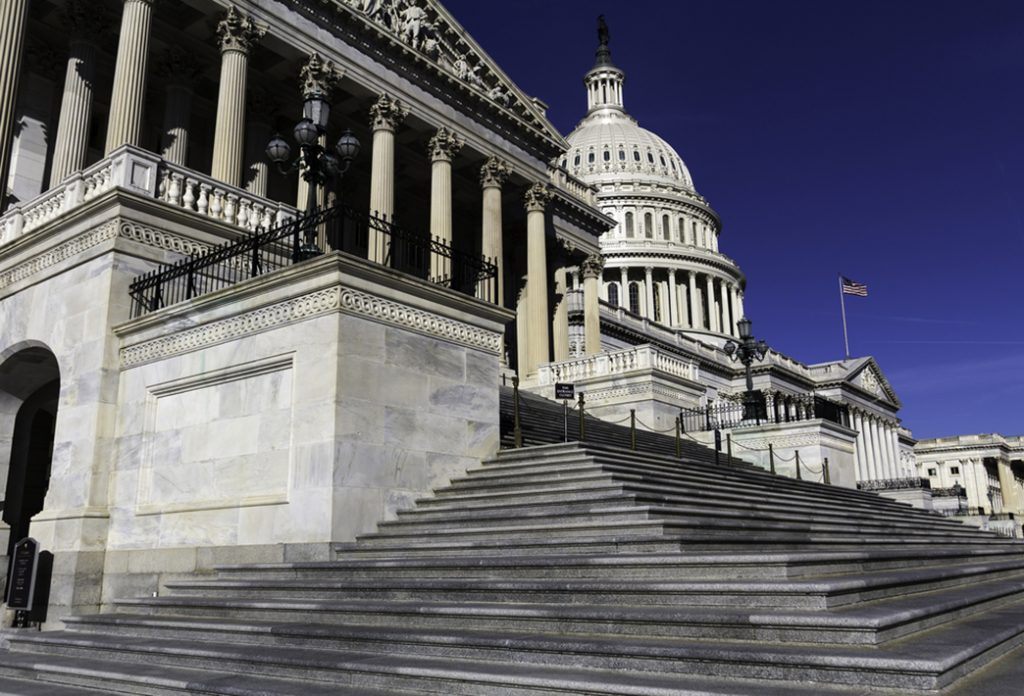Millions of times later, 97 percent climate consensus still faces denial
By Dana Nuccitelli | August 15, 2019

A few weeks ago, the Bulletin ran a story referring to how Frank Luntz—the GOP message master who convinced party politicians to use the phrase “climate change” instead of “global warming” because the former sounded “less frightening”—is now offering his services to the cause of climate action. The idea that someone who had once crafted talking points defending some of the world’s worst carbon polluters had changed his tune to now advocate for “cleaner, safer, healthier” energy alternatives seemed to signal the dawn of a new era, right?
Not so fast.
In July, the Exxon- and Koch- funded Competitive Enterprise Institute (CEI) issued a formal complaint, asking NASA to “correct” a statement on the space agency’s website that said that “Multiple studies published in peer-reviewed scientific journals show that 97 percent or more of actively publishing climate scientists agree: Climate-warming trends over the past century are extremely likely due to human activities.” In its complaint about NASA’s accurate statement, CEI cited 5-year-old disproved blog posts with titles like “1.6%, Not 97%, Agree that Humans are the Main Cause of Global Warming.” (It also cited conservative media outlets like Forbes, National Review, and the Daily Caller.)
So, what is the real percentage of climate researchers who agree that climate change is largely man-made? And what is the origin of the widely held perception among the American public that the science is still unsettled?
The numbers. By coincidence, also in July, a 2013 paper that I co-authored with my colleagues at Skeptical Science on the expert consensus about human-caused climate change in peer-reviewed literature was downloaded for the millionth time. In that study, our team examined the abstracts of nearly 12,000 peer-reviewed climate science studies published between 1991 and 2011, and categorized each one based on its position on the causes of global warming. In a second phase of our analysis we e-mailed the authors of each study and asked them to categorize their own papers using the same criteria, receiving 1,200 responses. Our team’s review of the abstracts yielded a 97.1 percent consensus that humans are primarily responsible for recent global warming; the author self-ratings yielded a 97.2 percent consensus.
Our analysis built upon a previous study published by Naomi Oreskes in the peer-reviewed journal Science in 2004. In her paper, which also just surpassed 1 million downloads, Oreskes examined the abstracts of 928 peer-reviewed climate papers published between 1993 and 2003. In her review, none of the abstracts disputed human-caused global warming. Not a single one out of 928. In 2016, our two groups teamed with the authors of five other climate consensus studies to publish a paper documenting the ‘consensus on consensus,’ in which we demonstrated that between 90 and 100 percent of climate scientists and their peer-reviewed research agree that humans are the main cause of recent global warming.
There has been a fairly steady increase in American public perception that most scientists agree on global warming, recently rising to record levels. Yet only 1-in-5 Americans realize that over 90 percent of climate scientists have concluded human-caused global warming is happening. Even Americans “alarmed” about climate change only think that 80 percent of climate scientists have reached this conclusion, which illustrates how widespread the public underestimation of the expert climate consensus remains to this day.
Origins. That so-called “consensus gap” between public perception and the reality of expert agreement is largely due to a sustained misinformation campaign. “There is no consensus” has been one of the most popular climate myths and can be traced back to a memo authored circa 2001 by that same Republican political strategist, Frank Luntz, who wrote then: “Voters believe that there is no consensus about global warming within the scientific community. Should the public come to believe that the scientific issues are settled, their views about global warming will change accordingly. Therefore, you need to continue to make the lack of scientific certainty a primary issue in the debate.” (To be fair, Luntz recently testified before the House Special Committee on the Climate Crisis, acknowledging, “I’m here before you to say that I was wrong in 2001 … Just stop using something that I wrote 18 years ago, because it’s not accurate today.”)
Fossil fuel-funded think tanks have apparently not heeded Luntz’s pleas; the formal complaint issued to NASA argued that our study excluded papers that did not take a position on the cause of global warming—which is akin to arguing that there’s no consensus as to whether the Earth is round or flat: Scientists publishing relevant research in a peer-reviewed journal don’t waste precious space stating a position on topics that have been settled.
It is in the fossil fuel industry’s best short-term self-interest to spread doubt on this issue. As our 97 percent consensus study lead author and cognitive scientist John Cook has documented, social science research shows that accepting the presence of expert climate consensus is a ‘Gateway Belief.’ This means that when people are aware of the consensus of the experts when it comes to climate change, they are more likely to accept the science and support climate policies that would reduce fossil fuel industry profitability.
While public awareness of the expert consensus and support for climate policies is growing, especially among the younger generations, we still have a long way to go. One million downloads hasn’t been enough to overcome the hundreds of millions of dollars spent by the fossil fuel industry on its climate misinformation campaign. But Millennials and Gen-Z have only known a world full of record heat and extreme weather. That’s why there’s a climate change generation gap, and why as they come of age, American adults are finally making progress in accepting the expert consensus, scientific realities, and need for serious climate policies.
The question is whether they will do so fast enough—and whether the GOP will jettison its stance of being the only climate-denying major conservative political party in the world before it’s demolished by the climate electoral time bomb.
Together, we make the world safer.
The Bulletin elevates expert voices above the noise. But as an independent nonprofit organization, our operations depend on the support of readers like you. Help us continue to deliver quality journalism that holds leaders accountable. Your support of our work at any level is important. In return, we promise our coverage will be understandable, influential, vigilant, solution-oriented, and fair-minded. Together we can make a difference.
















You make many references to peer review. Could you perhaps describe the process for the benefit of laymen like myself.
You could simply Google “peer review process” to find a quick answer. It’s a very well established concept.
Scientists submit a study to a journal. The journal editors send it along to other experts in the same field (peers) who review it and make comments and recommend whether the study should be published as-is or with revisions or rejected.
Hi Roy, I taught science for 30 years. So I will give it a try. Scientists use the scientific method. It’s easy to explain using simple concepts first. Say you hold up a ball and ask your students “what will happen if I let go of the ball. Students make a “prediction,” then you let go of the ball and “experiment” The ball falls to the floor, the “observation.” The tricky part is coming up with an Explanation of why the ball fell. Thanks to Newton we know about gravity. In theory. The great thing about science is that it’s… Read more »
Your article states that following about your 2013 article: “Our team’s review of the abstracts yielded a 97.1 percent consensus that humans are primarily responsible for recent global warming; the author self-ratings yielded a 97.2 percent consensus.” However, your 2013 article does not address ‘primary responsibility for global warming’, it instead asks whether human activity has some effect of global temperatures. Everybody, including a climate skeptic like me, agrees that everything affects everything including human activity affecting global temperatures – so your consensus statement as asked is essentially a meaningless nothingburger. You are lying about your 2013 paper by claiming… Read more »
This is a common misconception about our paper. Firstly, the default consensus position is that humans are primarily responsible for recent global warming (see the IPCC reports). Second, studies that minimized the human influence on global warming (i.e. implicitly or explicitly suggested a natural factor was primarily responsible) were placed in the ‘rejection’ categories (the less than 3%).
And FYI it’s not true that ‘everybody’ agrees humans impact global temperatures. There are quite a few greenhouse effect deniers out there.
” Everybody, including a climate skeptic like me, agrees that everything affects everything including human activity affecting global temperatures” Wow, really? I’ve been following the denialist arguments for years, and this is news to me. Maybe you need to spread it more amongst your fellows…including the ones still denying that humans have any significant impact on global climate. And btw, no, not everyone, including scientists, believe ‘everything affects everything’. Not ‘every’ thing has a *significant* effect.
The following are scientific organizations that hold the position that Climate Change has been caused by human action:
http://opr.ca.gov/facts/list-of-scientific-organizations.html
http://opr.ca.gov/facts/scientific-consensus.html
https://climate.nasa.gov/scientific-consensus/
https://journals.sagepub.com/doi/abs/10.1177/0270467617707079?journalCode=bsta
Any more questions?
“Our team’s review of the abstracts yielded a 97.1 percent consensus that humans are primarily responsible for recent global warming; ”
Actually, it doesn’t. The 97.1% number comes from section three of your study, which specifically states that 3896 papers out of almost 12,000 papers are considered to endorse AGW. It also states that this 3896 includes papers that consider man may be responsible for only 1-2% of the warming seen, not the primary cause of warming.
It is misrepresenting your numbers that allows people to dismiss them (rightfully or otherwise).
Right, 97.1% of the abstracts (and 97.2% of papers) that took a position on the cause of global warming agreed humans are responsible. As noted in the above article, many papers (and especially abstracts, which have strict word limits and are thus valuable real estate) don’t bother to state the obvious. That doesn’t mean the scientific authors stating no position think humans aren’t causing global warming or that the Earth is flat. We can only calculate the consensus based on papers that take a position.
From how I read the article was 97%t think humans participate in global warming, we add to it. It did no say we were the primary cause, though I think we are. I think we are about 55 to 65 per cent of the warming. I also think you are misusing the paper.
We’re actually responsible for all the warming since 1950, again per the IPCC.
https://www.theguardian.com/environment/climate-consensus-97-per-cent/2013/sep/27/global-warming-ipcc-report-humans
I always think it’s odd how many people think they understand a study I co-authored better than I do (though the same folks tend to think they understand climate science better than climate scientists).
Great reply
I found this dialogue and your research synopsis, Dana, when reflecting on the 97% figure and wondering “who are the 3%?” I gather that your conclusion would be that “at a minimum” 97% of peer reviewed climate scientists agree. Do you know of any studies/surveys of scientists who have prepared and published in peer reviewed journals on climate science, asking them if they agree with the statement: “Climate-warming trends over the past century are extremely likely due to human activities.” Aside from a very small handful of individuals who purport to be climate scientists, and may or may not publish… Read more »
Do you realise how ridiculous it sounds when you are trying to explain the paper to the person who wrote it?
I should think older people ought to be MORE likely to accept that global warming is real, since we can remember further back and therefore have seen more warming.
I retired from DuPont in 2004 as corporate mgr of product stewardship. The company and its scientists had accepted from 1990 as fact that manmade climate change was real and presented serious risks to life on earth. I have closely followed the scientific literature since then. The data and consensus and risk assessments have only become stronger. I am very concerned for my grand children. Those who claim to not believe should provide peer reviewed references that support their opinions.
At my grandfather’s funeral in December 1971 I was seated next to the famous astrogeologist Gene Shoemaker. That day he explained to me how man-made pollution in the atmosphere absorbs the sun’s energy and increases the earth’s temperature. This anecdote serves as a timestamp of how long ago a leading scientist chose this as the one scientific insight he wanted to explain to the public. It is a testimony to intellectual recalcitrance that, lacking any plausible alternative explanation for the observed global warming, there are some people who still adamantly deny both their own culpability and the seriousness of this… Read more »
We need to enact The Green New Deal. It’s affordable & very well thought out.
You pay for it then.
Mr. E, you’re already paying/giving Big Oil millions while they make billions in profits polluting the world. And yet somehow now you’re not okay for doing the same for renewable energy, which will create more jobs and help save our way of life. Seems like a deeply flawed logic there buddy.